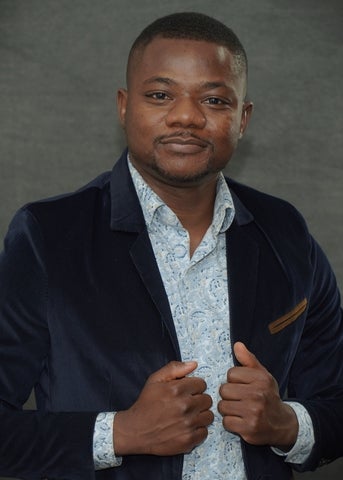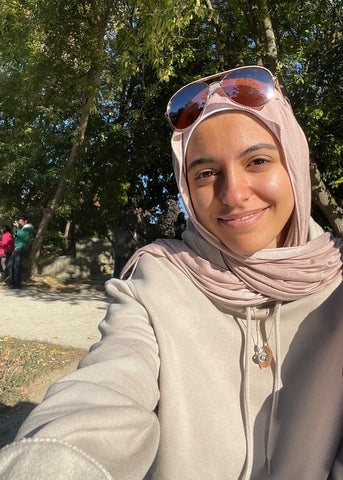An opportunity to accelerate scholarship and careers for emerging scholars with international (non-Canadian) experience from all disciplines.
Focused on future cities and on the processes, issues, and discoveries that will shape them, this Fellowship is made possible through a generous philanthropic gift by Caivan Communities.

One Fellowship awarded annually
One Fellowship will be awarded annually, normally for a period of two years in 2023, and will be $60,000 per year with the possibility of an additional $3,000 per year to support research-related expenses.
These exceptional scholars will interact with the University community and Caivan Communities in meaningful ways including:
- Accelerating the conception and conduct of impactful, transformative research
- Driving a disruptive research agenda that identifies, describes, defines, and addresses complex contemporary and future cities problems; and brings their international experience into the Canadian context
- Exploring new opportunities for the application of research and commercialization
- Engaging in the delivery of world-class education, within and beyond the academy
- Acting as mentors to students and young scholars
- Bringing learned experience and international experiential perspective into the University of Waterloo’s faculty of Environment broadly, and into the classroom.

Raphael Anammasiya Ayambire
Ph.D., School of Planning ’22
2021 Caivan International Experience Postdoctoral Fellowship Recipient
As the Caivan International Experience Postdoctoral Fellow Raphael focused specifically on understanding how city-building can address social equity issues that continue to confront cities. He believed that regardless of what the future of our cities would look like, ensuring equity is central to making such cities sustainable.
“Changemakers do not necessarily have to come with a long list of publications, they do not have to come with a long list of work experiences. Changemakers could just be the young man, the young woman who has nothing but only has a vision for himself or herself and the future of our communities. The greatest thing the Caivan Post Doc Fellowship has done for me is to buy into my ideas because everything starts from an idea."

Farah El-shayeb
Geography and Environmental Management
2023 Caivan Future Cities Undergraduate Scholarship Recipient
Farah dreamed of an education that would combine her interests and hobbies into a unique and creative discipline. She chose Geography & Environmental Management because of its interdisciplinary focus and integrative perspective. She is also a Varsity Athlete on the University of Waterloo Women’s Squash team, a Faculty of Environment Ambassador, a teaching assistant, and a student researcher.
This summer, Farah will be traveling to Peru on a three-month journey where she plans to apply the knowledge gained from the Future Cities course to Café Feminino, an NGO in Chiclayo, Peru. Her goal is to pursue a graduate degree and continue in academia. She is passionate about futuring, adaptation/mitigation strategies, geophysical hazards and aspires to work at National Geographic, United Nations, and with NGOs worldwide.
“This scholarship will support my academic journey, and field research and help me look beyond customary ideas. Thank you again for your investment in the University of Waterloo and students like me.”
Why the University of Waterloo?
The University of Waterloo is one of Canada's premier research-intensive universities. Our international reputation for excellence and innovation attracts some of the most innovative and creative researchers in the world, including approximately 400 postdocs. Waterloo’s research community includes more than 30 University research centres and institutes supported by over 1,300 faculty members.
The University’s external partnerships, including private sector support for research, are among the strongest in Canada, spurred in part by the University’s intellectual property policy and commitment to research commercialization. The Region of Waterloo, where the University is located, is central to southwestern Ontario’s Innovation corridor, home to the second-highest density of startups and entrepreneurial activity in North America.
The University of Waterloo regards diversity as an integral part of academic excellence and is committed to employment equity and accessibility for all employees. As such, we encourage applications from women, indigenous (First Nations, Métis, and Inuit) peoples, persons with disabilities, members of diverse gender identities, and others who may contribute to the further diversification of ideas. At Waterloo, scholars will have the opportunity to work across disciplines and collaborate with an international community of scholars and a diverse student body, situated in a rapidly growing community that has been termed a “hub for innovation.”
Eligibility and selection criteria
Who is eligible to apply?
- Foreign citizens, permanent residents of Canada, and Canadian citizens are eligible to apply.
- Ph.D. in any discipline with a dissertation related to future cities and the processes, issues, and discoveries that will shape them.
- Applicants must fulfill or have fulfilled all degree requirements for a Ph.D. between July 1, 2018 and July 1, 2023 (inclusively.) For applicants who have completed more than one Ph.D., the eligibility window applies to the most recent of the degrees.
The window of eligibility can be extended by a cumulative maximum of two years if the applicant had their academic career interrupted for one or more of the following reasons:
- Parental leave
- Health-related illness
- Family responsibilities
- Mandatory military service
- Disruptions due to war, civil conflicts and/or natural disasters in a country of residence
Interruptions used to extend the eligibility window for degree completion must have occurred after the “fulfilment of the degree requirements” * and before the application submission deadline.
*“Fulfilled all requirements of the degree” refers to the date that all degree requirements were met, including thesis defense corrections and submission of thesis. It does not refer to the convocation date.
- Applicants who currently hold a tri-agency postdoctoral fellowship (Banting, CIHR, NSERC, SSHRC) are eligible to apply for the Caivan Communities Fellowship only if the term of that funding officially ends prior to the start of the Caivan Communities Fellowship.
- Applicants must not hold a tenure-track or tenured faculty position, nor can they be on leave from such a position.
- Applicants must not otherwise be employed full-time for the duration of the Fellowship.
- The Caivan Communities Fellowship is non-renewable and is issued for the duration initially awarded. It can only be held once in a lifetime.
Selection criteria
The program seeks to attract globally recognized, emergent scholars whose work will inform the design of future cities by focusing on processes, issues, and discoveries that will shape them. The University seeks candidates who have demonstrated:
- Academic excellence
- Research creativity, rigor, productivity, and impact
- Evidence of leadership; both academic and beyond the academy
All eligible applications will be reviewed by a panel of four members/alumni of the University of Waterloo, chosen by the Dean of the Faculty of Environment.
A short-list of candidates will be identified by early February 2023. The short-listed scholars may be invited to participate in an online interview with the committee, with decisions and offers being made by end of February 2023. Scholars will have until March 31, 2023 to accept the position. The University of Waterloo is eager to host scholars as early as July 1 and no later than September 30, 2023.
How to apply
We are now seeking a third pool of applicants. Applications are due on January 31, 2023.
1. Applicant first contacts a proposed University of Waterloo faculty member to be a supervisor.
The first component of the application includes obtaining endorsement from a Faculty of Environment, University of Waterloo faculty member. The Faculty of Environment Research Clusters web page outlines the research expertise of faculty members.
Applicants should consider the proposed faculty member’s research and the alignment with their own research expertise and background prior to contacting the prospective faculty member.
When contacting a Waterloo faculty member, applicants are encouraged to share their up-to-date curriculum vitae and a proposed outline of the research that can be accomplished as part of the Fellowship, working in partnership with the Waterloo faculty member.
Once a partnership has been arranged between a proposed scholar (applicant) and a University of Waterloo faculty member, the supervisor will confirm to the applicant, via email, their support of the candidate’s application and willingness to work with him/her. This email must be included with the application materials. The University of Waterloo faculty member will also be required to provide a letter to the Dean of Environment outlining the ways in which the proposed research aligns with University and Faculty research priorities, the fit of the proposed research with the faculty members’ research, and the plan of support in terms of mentorship and other opportunities.
2. Applicant contacts referees to provide reference letter.
The Caivan Communities Fellowship application requires two reference letters, one of which must be from a referee who is at arm’s length from the applicant.
The arm’s length referee should be an expert in the field of the proposed research and should be able to assess the research proposal and academic CV in that capacity. Examples of an arm’s length referee include but are not limited to, the external examiner from the applicant’s doctoral defense or a specialist the applicant met at a conference. It is not necessary for the applicant to have met the arm’s length referee.
The arm’s length referee cannot be:
- A relative, friend, or anyone else with whom the applicant has a personal relationship; Affiliated with the applicant’s current and/or proposed institution(s);
- Professionally affiliated with the applicant because of but not limited to: Being the applicant’s supervisor or trainee,
- Collaborating, publishing, or sharing funding with the applicant
The second referee should be either the applicant’s doctoral research supervisor or committee member.
Referees must be able to provide relevant evidence, perspectives, and insight to support the review of the application. The assessments contribute to a major part of the evaluation of the application and its potential success. It is the applicant’s responsibility to provide the referees with the information they require in order to complete an informed and strong assessment.
Reference letters must address the creativity, rigour, and impact of the dissertation and other scholarly work.
Referees will be required to send a PDF copy of their letter (signed and on letterhead) that addresses the above criteria, to Juli-Ann Perkins at juli-ann.perkins@uwaterloo.ca by January 28, 2023.
3. Applicant submits the application package to Juli-Ann Perkins at juli-ann.perkins@uwaterloo.ca by January 31, 2023. To be complete, an application package must include:
- An up-to-date academic curriculum vitae (CV)
- Information related to Ph.D. degree completion, including (if applicable) a special circumstances statement, with regards to the window of eligibility criterion; it is essential that the applicant provide specific dates for delays and/or interruptions, including the exact number of months or days of these interruptions.
- Email confirmation from a University of Waterloo faculty member who is willing to act as academic supervisor/mentor for the duration of the Fellowship
- Names, affiliations, and emails of the two referees who have agreed to send letters of reference
- A research plan/statement that outlines the nature of the work to be undertaken under the Fellowship, its expected impact, and elaboration of the unique perspectives and experiences that the applicant would bring to University of Waterloo-- a maximum of 5 pages (excluding references) with 11-point font, single-spaced, 1” margins on all sides.